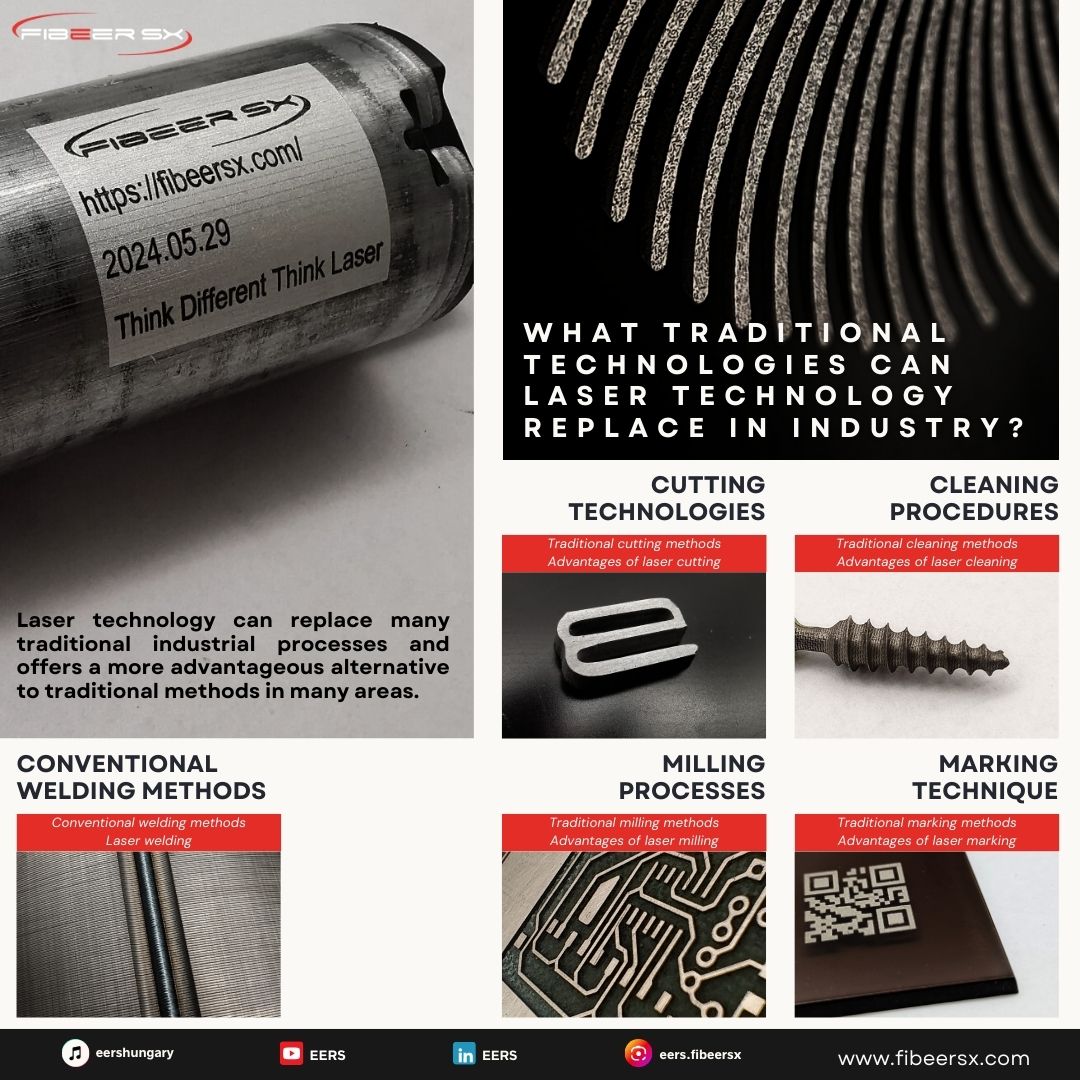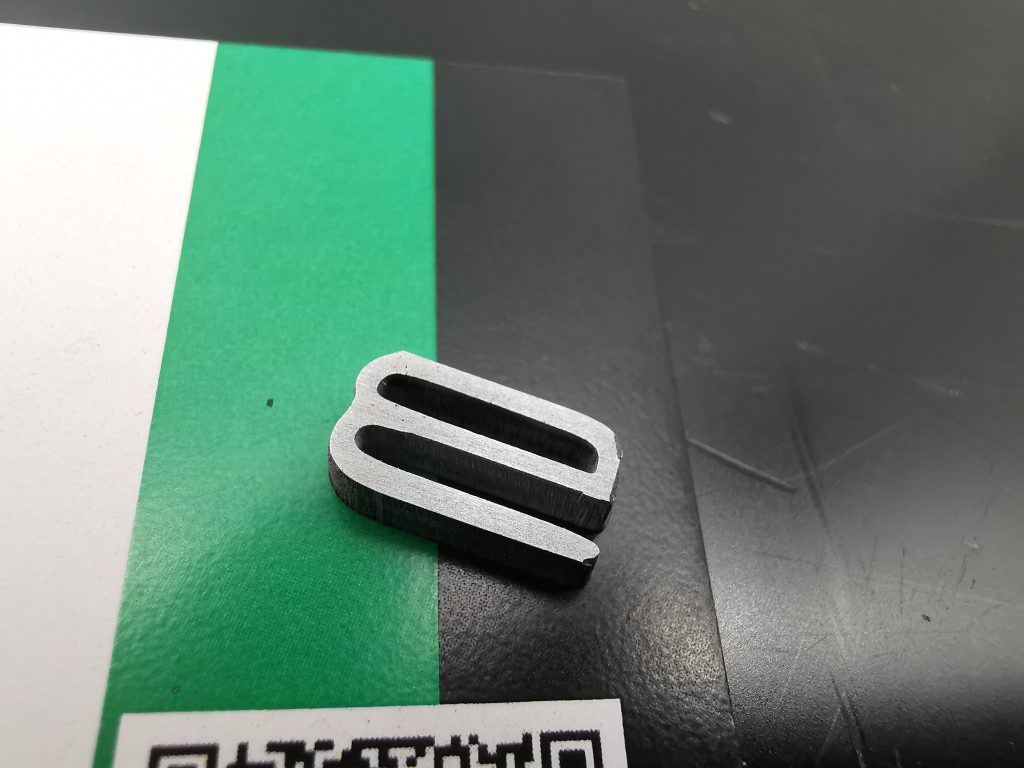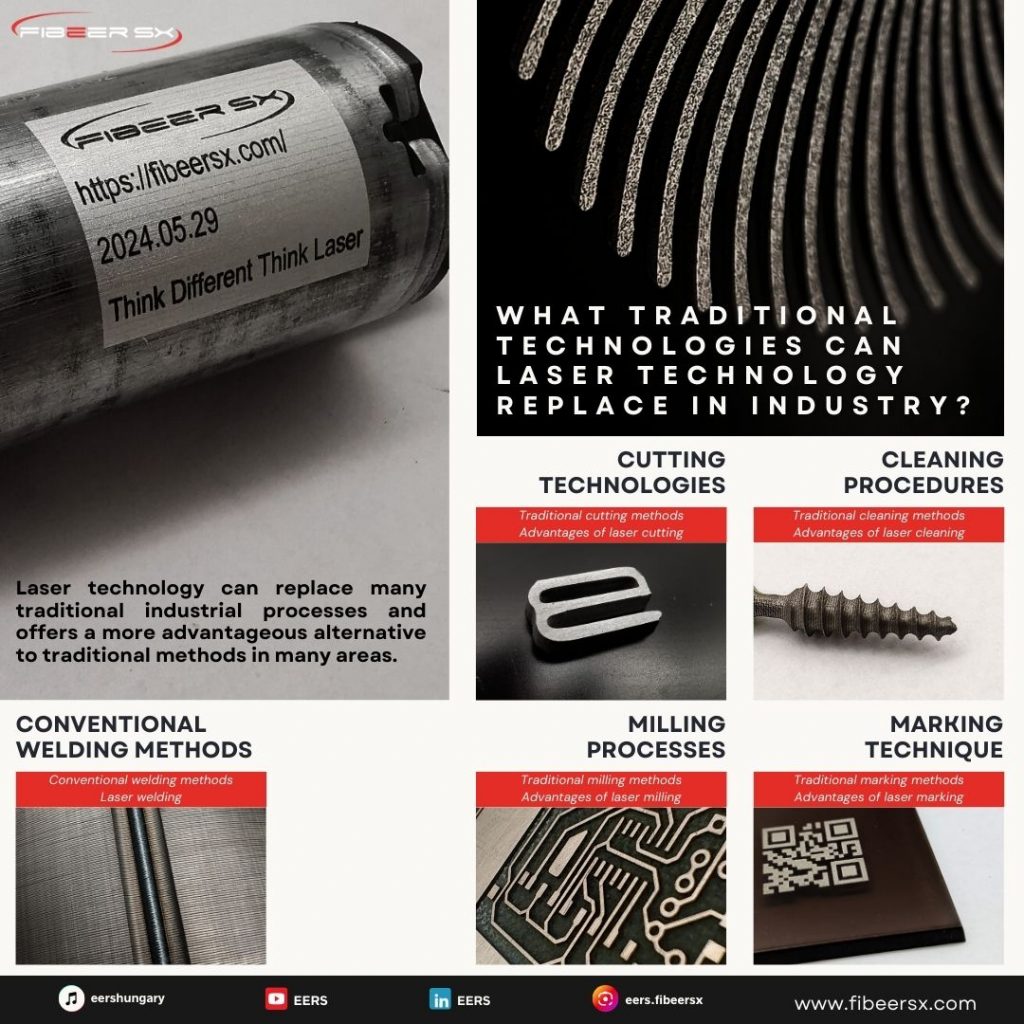
Cleaning procedures
Traditional cleaning methods
Sandblasting, chemical cleaning, dry ice blasting. With these technologies, we have to take into account material wear and physical contact. During sand cleaning, the work is carried out in full protective equipment. Chemical cleaning is harmful to health and the environment.
Advantages of laser cleaning
It does not use chemicals, so there is no environmental pollution. It does not cause mechanical damage to surfaces and there is no possibility of human error. Its accuracy is better than that of traditional procedures, it removes only the desired layers, with minimal waste.
Marking technique
Traditional laser methods
Labeling, dotting, pin marking, pad printing, marking with paint. It does not produce a permanent marking like laser engraving and most traditional markings require paint or other yielding material.
Advantages of laser marking
Laser markings are wear-resistant and durable. No paints or chemicals required. Even fine details can be easily created thanks to its precision.
Milling processes
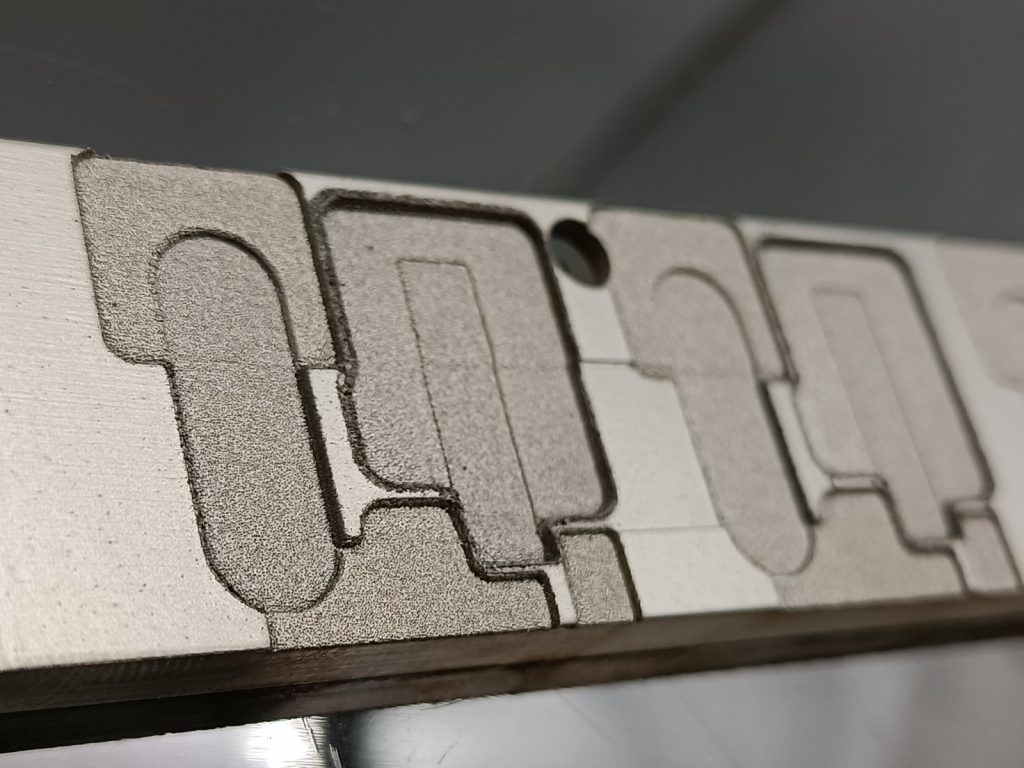
Mechanical milling, chipping. In the case of cutting processes, we always have to take into account tool wear and continuous maintenance.
Advantages of laser milling
Fine structures can also be created, which are difficult to handle with traditional methods. Avoids mechanical wear and damage. Only the necessary amount of material is removed, minimizing waste.
Cutting technologies
Traditional cutting methods
Mechanical cutting, scissor cutting, water jet cutting. With these procedures, we do not get as precise and beautiful cutting edges as with the laser.
Laser cutting advantages
Fine details and complex shapes can be cut out easily, narrow cutting gaps and smooth edges can be achieved with minimal waste. Faster than many conventional cutting processes, especially for thin materials.
Welding methods
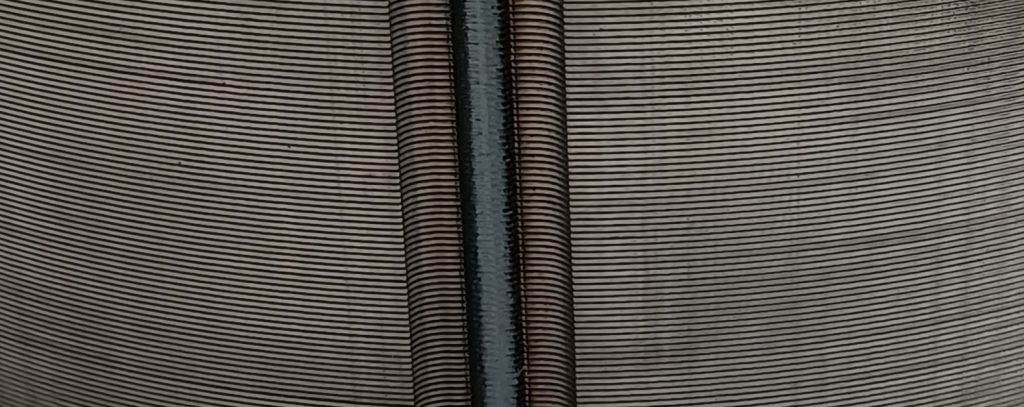
Conventional welding methods
Traditional arc welding, gas welding. With vertical welding, larger seams can be made and are less precise than the laser process.
Laser welding
Smaller welds can be created with minimal deformation thanks to its precision. In addition to its precision, it comes with high speed and high productivity. It performs the welding process with a minimal heat effect, reduced heat input in the welding zone, thanks to which there is less damage caused by heat.

Laser technology offers many advantages over traditional industrial methods, including precision, environmental awareness, speed, and material savings. These benefits allow companies to be more competitive while reducing negative impacts on the environment.

